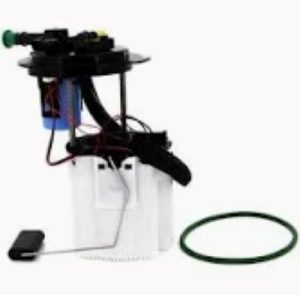Internal cleaning of some fuel pumps is possible, but generally, this can be more efficient for preventive maintenance rather than solving the problem if the fuel pump has already failed or acts too poorly. In the fuel tank, all kinds of contaminants like debris, rust, residual fuel accumulate over time and can reach the pump, blocking it and reducing its performance. Since they are usually very sensitive to varnish build-up, most in-tank fuel pumps draw fuel directly from the tank and a periodic internal cleaning may be beneficial. However, fuel pumps are complex components, and accessibility for cleaning to some of the internal components impacted, such as gears or rotors, can be quite limited.
The most common cleaning of the fuel pump involves specific fuel system cleaners or additives that dissolve and break down the internal deposits inside the pump and the fuel lines. These additives circulate in the system and clean up the deposits in the pump, fuel injectors, and fuel lines that could even improve the overall fuel flow. Some studies indicate that with quality fuel, combined with fuel additives, deposit buildup may be reduced by as much as 10-15% over a period of time. While this might prevent further building up, much of its effectiveness depends on the condition of the pump and the type of contaminants involved.

Besides, periodic maintenance, like fuel filter replacements, needs to be carried out to keep the fuel pump in as clean and functional a condition as possible. Fuel filters are normally replaced every 30,000 miles. These are mechanical barriers that block the dirt and debris from going into the pump. A clogged filter makes the pump work much harder by creating more friction and heat inside the pump, making it wear out faster. Changing the filter can help reduce the stress on the pump and make it last longer to prevent the clog from going into the internal parts of the fuel pump.
Cleaning at times involves the dismounting of the pump to access certain parts. While some automotive experts try to do this, it is an extremely time-consuming activity, with no guaranteed results in high-mileage pumps, that is, hose models that have gone past the 100,000-mile mark. High-mileage pumps do wear out along their inner parts and may never clean up efficiently again. Generally, replacing the pump is often a more reliable choice for long-term performance.
Generally speaking, cleaning the fuel pump should be considered a preventative measure rather than a cure for major wear and tear or internal damage. As Carroll Shelby once said, "The cleaner your machine, the longer it will run," which is pretty much a statement that truer words have never been spoken in regard to ongoing maintenance. Quality fuel investment, along with regular filter replacements, keeps the overall fuel system cleaner. When cleaning does not work to bring back the performance, high-quality replacement of the Fuel Pump ensures smooth operation and continuous reliability with protection against any future problems of the fuel system.